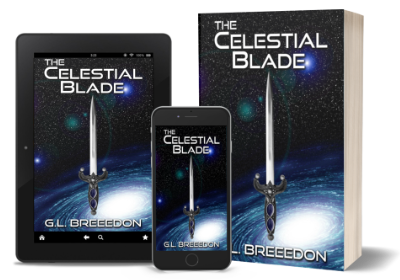 (Viktor Vasnetsov 1848-1926)
(Viktor Vasnetsov 1848-1926)
“And I beheld when he had opened the sixth seal; and, lo, there was a great Earthquake; and the sun became black as sackcloth of hair, and the moon became as blood; and the stars of heaven fell unto Earth, even as a fig tree casteth her untimely figs, when she is shaken of a mighty wind. And the heaven departed as a scroll when it is rolled together; and every mountain and island were moved out of their places.”
The Holy Bible, The Revelations, 6:12-13
The sunshine was like an ocean of light, drowning everything beneath the sky, washing out the green of the fields, and distorting the fences in the distance with its heat. Beneath my grandparents’ twin oak trees, the heat was almost bearable, the shade frequently supplanted by a warm errant wind. The warmth mattered little, because I barely noticed it. I barely noticed anything. I was reading, deeply engaged in a world that existed only on thin sheets of paper and the space between my ears. I was reading of a place distance in time and space. A place where things were very different from the world I lived in.
As a boy I was fascinated by science fiction. It wasn’t so much the stories of alien worlds, or intelligent creatures from other planets that interested me, it was the ideas that attracted me, particularly the notions about how the future might be. These usually came in two colors; the dark and broody tones of an apocalyptic future, or the bright and cheery hues of a utopia. Either way they sparked my imagination and made me consider the reality of the world I was living in, how it might change, and what the causes for its change might be.
Because it was science fiction, and often not very good science fiction, the change it espoused was usually due to advances in technology. Either technology would usher in a new golden age of prosperity for all, or it would plunge the world into some kind of technological nightmare where humanity was reduced to a cog in a vast and frightening machine. There is little realistic middle ground in science fiction; it just isn’t dramatic. Unfortunately there is little realistic middle ground to be found in contemporary non-fictional prognostications about the future either. Drama isn’t just used to sell us science fiction about the future, its used to sell us the future we are buying everyday.
 On the side of apocalypse you have people shouting that technology will be the end of us, that globalization will destroy the world, that the environment is falling apart at the seams, that we are becoming slaves to vastly powerful transnational corporations, and that the clash of cultures will shake civilization to it foundations. On the other side you have the proponents of cheery utopia proclaiming that genetic engineering will cure all disease and provide abundant food for all, that computers and robots will finally allow us to work less and have more, that economic globalization will eliminate poverty, and that advances in technology will allow us to fix any problems we create in the environment. The apocalyptic view is predicated on the notion that the utopian camp will succeed with its agenda. The utopians only see apocalypse if they are not allowed to implement their plans. One person’s utopia is another person’s apocalypse. How can this be?
On the side of apocalypse you have people shouting that technology will be the end of us, that globalization will destroy the world, that the environment is falling apart at the seams, that we are becoming slaves to vastly powerful transnational corporations, and that the clash of cultures will shake civilization to it foundations. On the other side you have the proponents of cheery utopia proclaiming that genetic engineering will cure all disease and provide abundant food for all, that computers and robots will finally allow us to work less and have more, that economic globalization will eliminate poverty, and that advances in technology will allow us to fix any problems we create in the environment. The apocalyptic view is predicated on the notion that the utopian camp will succeed with its agenda. The utopians only see apocalypse if they are not allowed to implement their plans. One person’s utopia is another person’s apocalypse. How can this be?
Worldviews – We all have notions of what a better tomorrow might look like, and we all have ideas about what would constitute an ill-fated future. How we define these notions depends on our worldview. The wider our perspective, the more things we will consider when addressing questions about the future.

